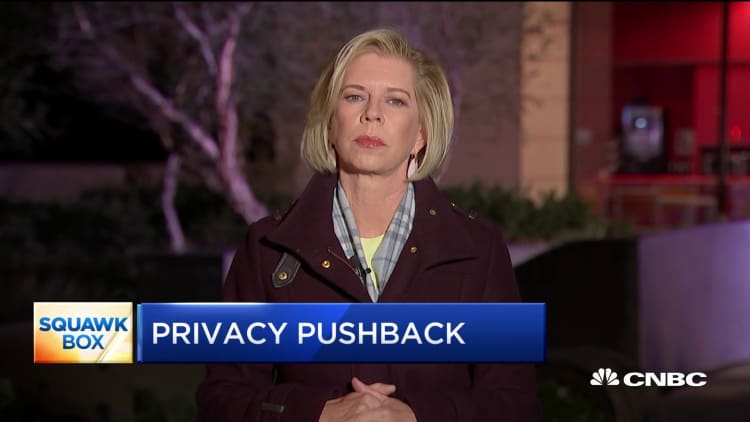The advertising industry's most powerful trade associations are sending a joint letter Wednesday morning to California Attorney General Xavier Becerra, asking to delay the office's enforcement of the California Consumer Protection Act, or CCPA.
The groups sending the letter are the Association of National Advertisers, American Association of Advertising Agencies (known as the 4A's), the American Advertising Federation, the Interactive Advertising Bureau and the Network Advertising Initiative. They were sending a letter to Becerra's office Wednesday requesting him to delay the enforcement of the new privacy law, which went into effect on Jan. 1 and deals with how large companies are allowed to collect and use data of California residents.
In the Wednesday letter, the groups said the regulations are not yet final, leaving their members and other businesses "uncertain concerning their ultimate compliance obligations." They wrote that given the law's complexity and the issues requiring clarity, there won't be enough time for businesses to implement the final regulations before July 1.
"We therefore ask you to delay enforcement of the CCPA until at least six months from the date of finalization of the rules implementing the law, in order to provide businesses a sufficient time period to implement the new regulations before being subject to enforcement," the letter said.
Businesses are subject to CCPA if they meet the requirements of having gross annual revenue of more than $25 million; buy, receive or sell the personal information of 50,000 or more consumers, households or devices in California; or derive 50% or more annual revenue from selling consumers' personal information. The company doesn't need to be in California, but is subject to the law if it collects personal information from residents there.
Though the law went into effect earlier this month, it technically isn't being enforced yet. Sarah Lovenheim, special assistant for strategic communications for Becerra's office, said in early January that businesses that meet the thresholds spelled out under CCPA "should be prepared to adhere to the law now." For noncompliance, companies will be required to pay $2,500 per violation if unintentional and $7,500 if intentional.
Businesses and other parties were able to submit comments about the regulations during public hearings, by mail or over email until last month. CCPA's rules are technically subject to change until comments are considered.
The ad trade groups were among those who provided comments on the rules, citing concerns about negative consequences proposed regulations could create for consumers and businesses.
The letter said the CCPA's draft rules require actions like requiring businesses to notify third parties it has sold personal information on a consumer to within 90 days, and instructing them not to further sell that information, once the business receives an "opt-out" request from a consumer. The groups call that requirement "new and unprecedented."
And businesses do have some questions about how to interpret certain elements of CCPA. Peloton, for instance, has said it doesn't completely understand what CCPA means when it refers to the "sale" of personal information.
"California residents have the right to opt out of our disclosures of Personal Information that we have disclosed to third parties for valuable consideration (which may be considered 'sales' under California law even if no money is exchanged)," the company writes in its California privacy notice. "What is covered as a 'sale' under California law is not yet clear, but we currently do not 'sell' your information as we understand it. However, Peloton respects and understands that you may still want to ensure your personal information is not sold." It offers a form for residents in California wishing to exercise their "Do Not Sell" rights.
Even beyond California law, privacy regulations are becoming the new normal.
Becerra's office didn't immediately return request for comment.
Two of the groups involved in the letter to Becerra's office also recently criticized Google's announcement that it would end third-party cookie support in its Chrome browsers within two years, which could harm their ability to track users' browsing histories. The ANA and the 4A's released a statement asking Google to commit to not imposing the moratorium on third-party cookies until "effective and meaningful alternatives are available."
Follow @CNBCtech on Twitter for the latest tech and advertising industry news.



